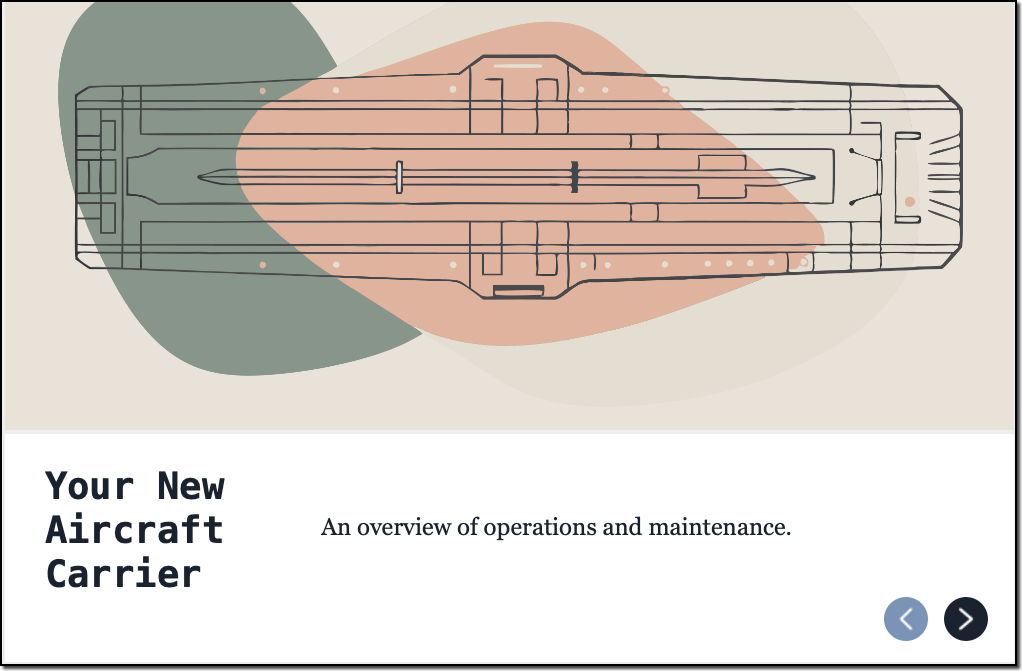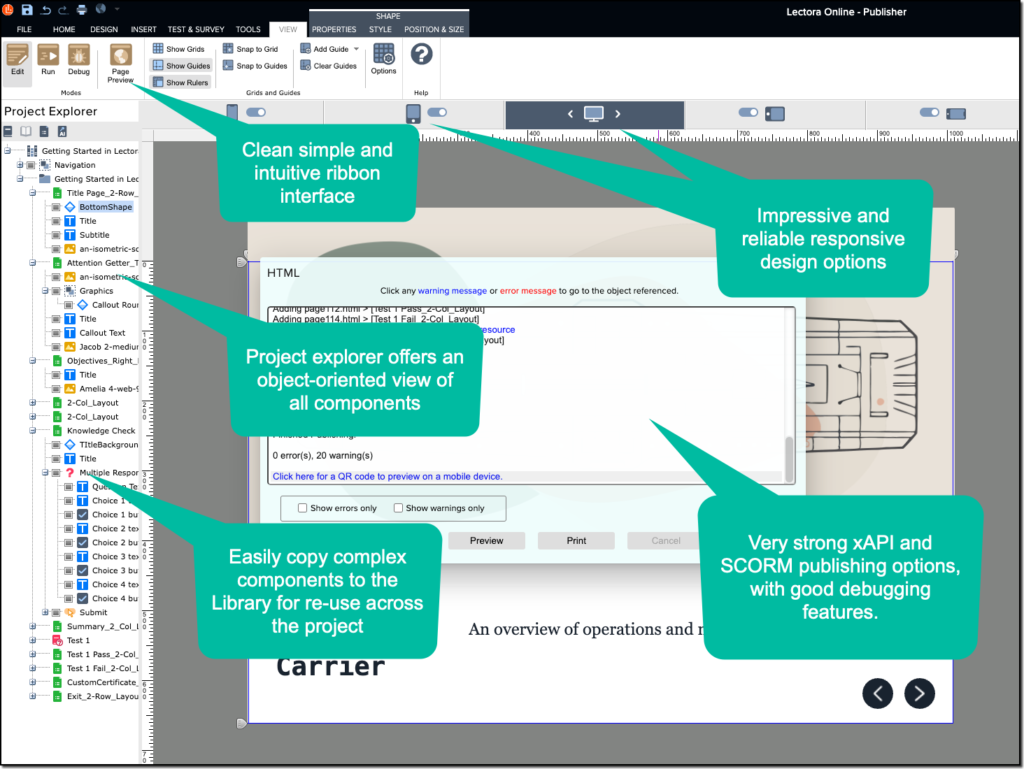
You know that feeling you get when you’ve just bought a new aircraft carrier, and you open the glove box for the first time, and pull out the 4 million page owner’s manual, and think to yourself: ‘Gee, I hope there is an engaging interactive e-learning module that covers all this stuff instead…’?
If such a module exists, it was likely built with Lectora.
I recently had the chance to refresh myself on this robust e-learning development platform, which I had used to create training for an enterprise document management system back when Lectora was a Trivantis product. At the time, I was very impressed with the cleanly structured approach that Lectora took to e-learning development, and the clean editable code it generated.
With its deep roots in SCORM compliance, Lectora excels at handling complex, large-scale training requirements that would overwhelm many other tools. As I brought myself up to speed on Lectora’s current capabilities, I was surprised to find that it is now also a very capable tool for a broader range of leaning needs that the enterprise niche I had slotted it into.
Here are several ways in which Lectora stands out as an e-learning development tool:
Industrial-Grade Publishing Options – The platform’s SCORM output capabilities go beyond basic completion tracking. Lectora provides granular control over what data gets reported to the LMS, including detailed interaction tracking, time spent on specific content, and custom variables. One government agency leverages this feature to track not just completion status, but also decision points in scenario-based security training, enabling detailed analysis of where employees might need additional support.
Template-Driven Development – Organizations with strong style guides and consistency needs will appreciate Lectora’s robust template system and reusable component libraries. Any object, group, or page can be saved to a library for reuse, while templates enable consistent course structure and styling. This comprehensive approach to reusability ensures that corporate standards are maintained while significantly reducing development time on large projects.
Strong Variable-Based Actions and Conditions – Lectora always felt code-friendly to me, and I see that Lectora’s variable system and code inclusion options have evolved to allow developers to create truly adaptive learning experiences. An example where this makes a difference might be a complex compliance training scenario where learners must demonstrate mastery across multiple interconnected topics. Lectora handles this type of intricate decision tree with ease, allowing developers to track user choices, test results, and completion status across multiple modules within the same “AU” (assignable unit) Lectora’s term for a SCORM module.
Legacy Content Integration – Lectora‘’’s import capabilities handle everything from PowerPoint presentations to PDF documents, preserving the original content while enabling developers to add interactivity and tracking. Again, this is a feature that is very efficient when working at scale with legacy materials.
Accessibility Compliance – Meeting accessibility standards is core to Lectora – it’s built into the development workflow. The platform includes tools for adding proper alt text, ensuring keyboard navigation, and maintaining correct heading structure. Developers can run accessibility checks at any point in the development process, making it easier to create Section 508 and WCAG compliant content from the start.
Developer-Friendly Interface – The Lectora interface offers a surprisingly smooth learning curve for e-learning developers experienced with Storyline or Captivate. The workspace layout follows familiar conventions, with an intuitive object-based development sidebar called the Project Explorer that I find uniquely powerful. The property ribbon and timeline features echo industry standards, yet Lectora’s implementation often feels more streamlined and faster to use.

Lectora occupies a unique position in the e-learning development landscape. While some other tools like Storyline might offer flashier interactive features, or like Rise and Chameleon focus on highly scaffolded, but relatively inflexible, rapid development, Lectora’s industrial-strength capabilities for building eLearning at scale make it an excellent choice for enterprises with complex training requirements, strict compliance standards, and large-scale deployment needs.
I see it as very much a tool for ‘failure is not an option’ learning development needs in critical heavy industry, medical, government, and military applications … like that shiny new aircraft carrier in your driveway.
